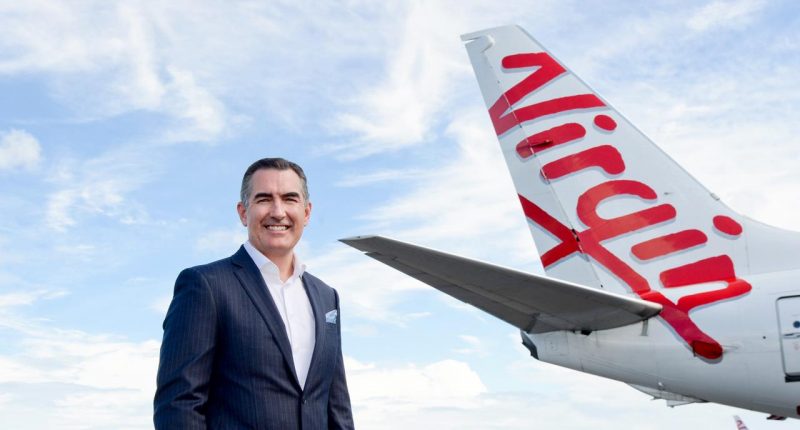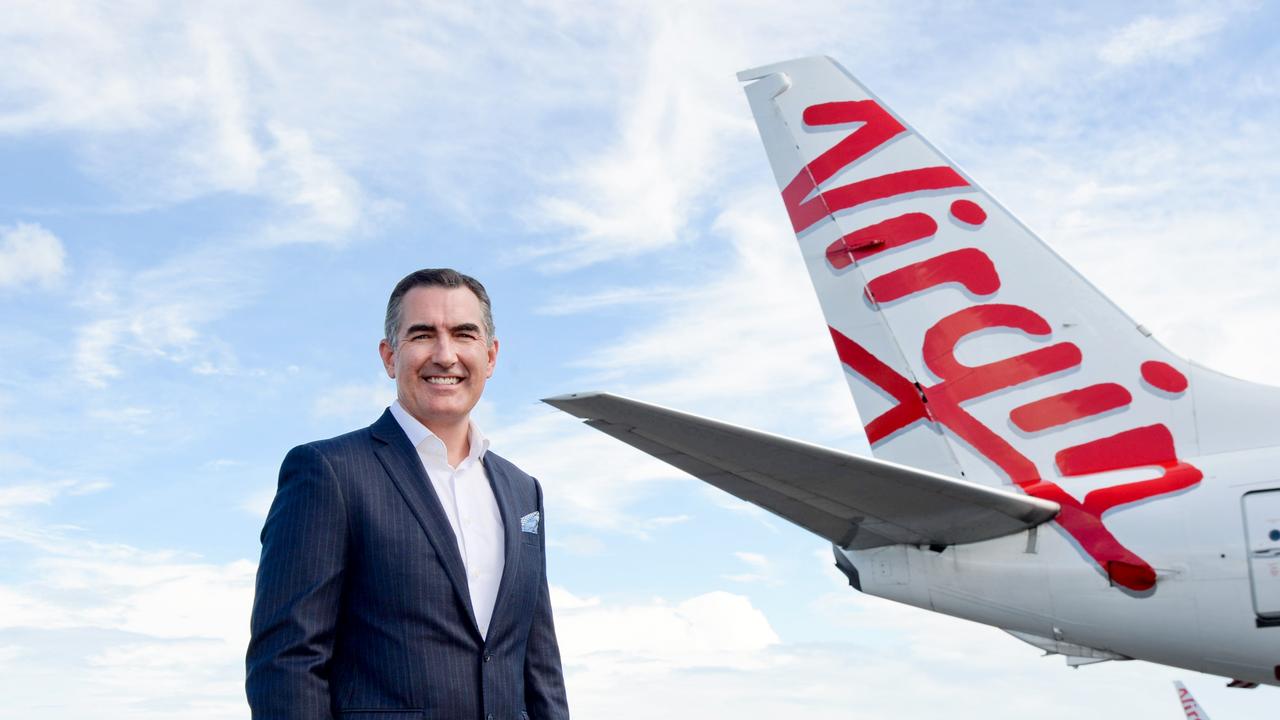- Virgin Australia (VAH) will axe 3000 jobs and cull Tigerair as it gears up to come out of voluntary administration
- The company was bought out by U.S. private equity group Bain Capital in late-June after COVID-19 saw the business crash and burn
- The new Virgin will be a simplified version of its former self, focussing on domestic flights and short-haul international business travel
- As part of the simplification business, the company will be ditching its entire aircraft range except for its Boeing 737 fleet
- The company will also need to slash its workforce by a third, sending 3000 jobs out the door
- CEO and Managing Director Paul Scurrah said the company hopes to rehire 2000 of these lost employees over the coming years as travel demand picks back up
Embattled airline company Virgin Australia (VAH) will axe 3000 jobs and cull its Tigerair business as it prepares to come out of voluntary administration under new owners.
The airline nosedived when COVID-19 struck and was forced into voluntary administration as borders across the globe closed. Virgin was bought out by U.S. private equity group Bain Capital in late-June.
Today, the company revealed plans to relaunch as a stripped-back version of its former self as it gears up to leave its administration.
The new Virgin will focus more on domestic flights and short-haul international business, but with the smaller focus comes smaller costs.
The company will need to cut a third of its workforce under its simplified business model, meaning 3000 jobs will be lost.
Virgin CEO and Managing Director Paul Scurrah said as the company attempts to manage the impact of COVID-19, tough decisions need to be made.
“We expect approximately 3000 roles will be impacted as a result of the changes announced today,” Paul said.
He added, however, that the company expects to bolster its workforce with another 2000 jobs in coming years as demand for travel ramps back up.
“We believe that over time we can set the foundations to grow Virgin Australia again and re-employ many of the highly skilled Virgin Australia team,” he said.
He admitted, however, that this could take a while.
“Demand for domestic and short-haul international travel is likely to take at least three years to return to pre-COVID-19 levels, with the real chance it could be longer, which means as a business we must make changes to ensure the Virgin Australia Group is successful in this new world,” Paul explained.
For the staff heading out the door, Paul said they will have all of their entitlements honoured and be given a two-year extension of employee travel benefits. On top of this, axed Virgin staff will have early access to retiree and long service benefits.
As part of the simplification process, Virgin will scrap the majority of its aircraft and move to an all-Boeing 737 mainline fleet. This means it will be ditching its ATR, Boeing 777, Airbus A330, and Tigerair Airbus A320 aircraft.
In fact, the Tigerair brand will be discontinued in its entirety due to the lack of demand for the low-cost carrier.
“Even when we do see a return to pre-COVID-19 levels of travel, successful airlines will be influenced by demand and look very different than the way they did previously,” Paul said.
All travel credits and Velocity frequent flyer points will still be valid.







